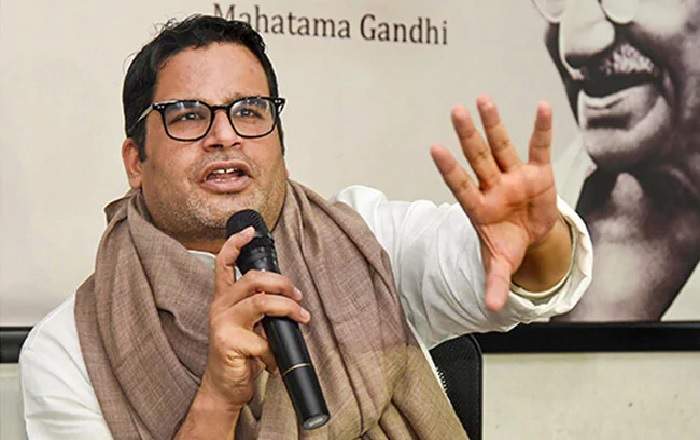Notwithstanding poll strategist Prashant Kishor’s detailed clarification in an interview to Rajdeep Sardesai of India Today on April 11 to his club-house chat ‘leaked’ by the Bharatiya Janata Party a day earlier the fact remains that no political pundit is prepared to predict the outcome of the Assembly election in West Bengal—or for that matter anywhere else.
From the very beginning it was almost clear that the Trinamool Congress under the leadership of chief minister Mamata Banerjee had a clear edge over the BJP. But after Prime Minister Narendra Modi’s visit to Bangladesh on March 26-27 and subsequent developments the situation somewhat started changing in favour of the saffron party.
So, when Prashant Kishor’s ‘partial’ and ‘edited’ club-house chat was leaked many objective analysts accepted that the BJP is going to win West Bengal this time.
However, Prashant Kishor’s immediate clarification somewhat confused the West Bengal-watchers and they are unable to correctly say anything on the poll outcome.
Anyway, forecasting election results is a hazardous job, especially in the era of so much noise as it becomes difficult to gauge the mood of the overwhelming silent voters. If one goes by the massive mobilisations of crowd, turnout in the public rallies and display of all sorts of resources, then the BJP should have won the Delhi Assembly elections both in 2015 and 2020. The truth is that it suffered humiliating defeat winning only three and eight seats in the two elections respectively. From the Prime Minister to almost all his ministers, various CMs, scores of ministers of other states, well over 100 MPs, a large number of MLAs from different states and many others worked day in and day out to ensure the party’s victory. In 2020 Assembly election the anti-Citizenship Amendment Act-cum-National Register of Citizens movement was fully exploited to polarise the society. A couple of surveys even suggested that the BJP may come to power, but the result went totally otherwise. The BJP might not have won the election but the communal poll campaign had its impact just after the result as riots broke out in North-East Delhi within 10 days.
Similarly, in Bihar Assembly election of 2015 Prime Minister Narendra Modi alone addressed around 30 election rallies. This was besides several official visits to Bihar just before the announcement of election dates. But the party ended up winning only 53 seats in the House of 243. Five other seats were won by its allies. In contrast, the Grand Alliance of Rashtriya Janata Dal, Janata Dal-United and Congress swept the poll by registering victory in 178 seats.
Very often the BJP’s strategy of using all sorts of propaganda material and tall claims of winning 180-plus seats as in Bihar or 200-plus as in West Bengal make the task of assessing the poll outcome rather difficult even for objective political analysts.
They are swayed by the hype created by the saffron party poll machine and pay little attention towards the silent majority such as women, minorities, Dalits etc. In such a situation they too indulge in oversimplification of the ground reality and jump to the conclusion on some presumptions.
If the BJP, though a very powerful party at the Centre, is repeatedly losing elections in the states it means that its strategy of going overboard in criticising the main political rival does not always work. It gives enough opportunity to the opposition to silently close its rank and regroup itself. The tactics of psychologically overpowering the political opponents is a double-edged weapon which can harm the saffron party itself. As the saffron party launched its campaign as early as on 4th November last year with the visit of Home Minister Amit Shah to West Bengal it gave enough opportunity to Mamata to launch a couple of welfare schemes by December 1.
In neighbouring state Jharkhand, its sitting chief minister Raghubar Das and state party president Laxman Gilua lost from their own Assembly constituencies in the December 2019 poll.
And in Chhattisgarh exactly a year before, the Congress, the party with hardly any resources in comparison to the BJP, made a virtual sweep by winning 66 seats in the House of 90. This was so when at least one reputed exit poll surveying agency claimed the return to power of the BJP.
In such a backdrop, it is no easy job believing either the ‘edited’ club-house chat or clarifications of Prashant Kishor.
Soroor Ahmed is a senior journalist based in Patna. The views expressed are personal.





